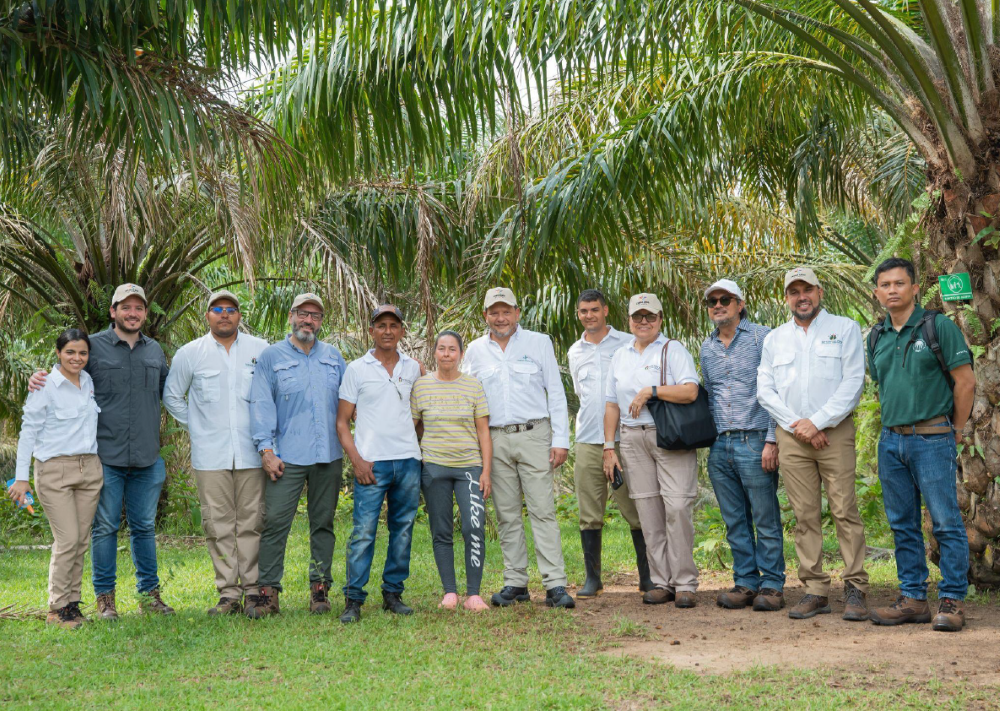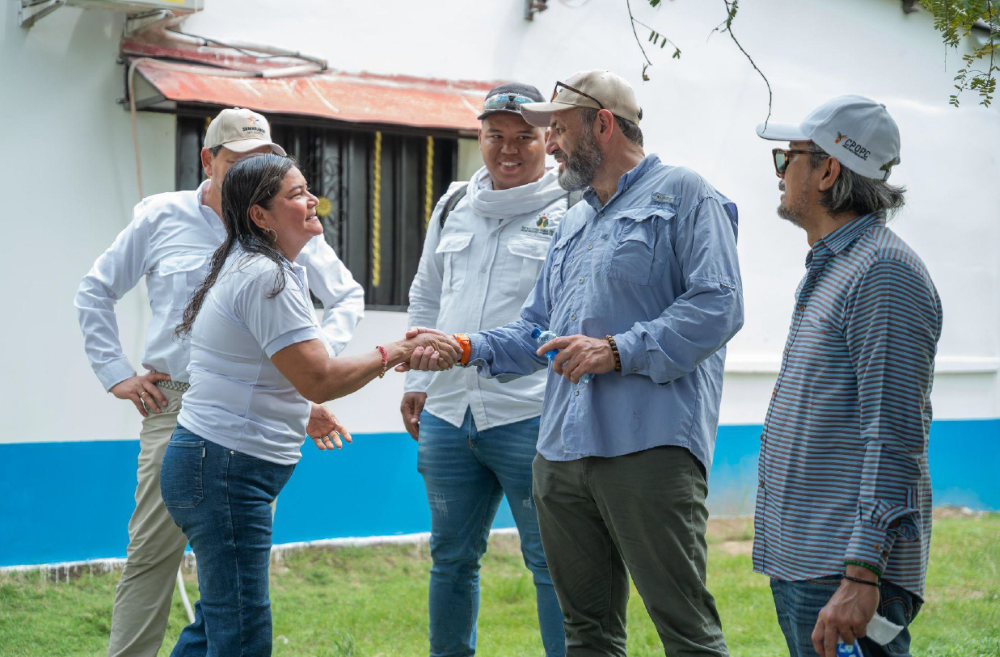By: Felix Among Gatot Prasetyo
How a Colombian community of independent smallholder farmers breathed back life into a former conflict zone – transforming fields once scarred by violence into sustainable oil palm plantations, rebuilding peace and a resilient future.

The transition from cocaine processing to cultivating palm oil has transformed lives in San Pablo, a town in southern Bolívar, Colombia.
For decades, this region was trapped in a cycle of violence and poverty. From the 1980s to 1990s, San Pablo became a battleground, as guerrilla groups like the ELN and FARC – later followed by paramilitary forces such as the AUC – fought for control of the cocaine trade. Fertile farmland was turned into conflict zones, and many farmers, with no other options, turned to coca cultivation to survive. Communities lived in constant fear, facing threats, assassinations, and forced displacement that tore families apart.
But today, the story is changing.
In 2018, with support from the RSPO Smallholder Support Fund (RSSF), a group of 208 smallholders, organised under PromoAgrosur with facilitator Promotora Superior S.A.S, embarked on a difficult yet hopeful journey. Starting with national certification through APSColombia, they are now on track to achieve RSPO Certification in June 2025.
Yet the road to certification has been far from easy. Like many communities in post-conflict regions, they faced deep mistrust, scarce resources, and the lingering effects of generational trauma. Yet through it all, their unity grew stronger—fueled by support from mills and local allies who believed in a different future.

For the RSPO team, witnessing this transformation has been deeply emotional. Here, certification is more than a market tool—it is a symbol of resilience, dignity, and shared triumph.
As security slowly returned, families came home, reclaiming lands once lost to conflict. Coca fields gave way to palm plantations. Illegal economies were replaced by legal livelihoods.
Today, palm oil is the lifeblood of San Pablo’s economy and a source of collective pride. Remarkably, 90% of the palm oil growers here are independent smallholders, managing their land with autonomy and purpose. Their success has revived not only local incomes and food security, but has also attracted workers from neighboring regions, breathing new life into a town once silenced by war.
Beyond an economic recovery, San Pablo’s transformation is a powerful story of rebuilding from the ground up, driven by hope, trust, and the unwavering determination of farmers who chose peace over fear, and sustainability over survival.
About the author: Felix Among Gatot Prasetyo is the RSPO Manager, Smallholder (RSSF).
Keep reading

Book Your Slot for the Additional prisma Clinic Session at RT2025

Advancing Jurisdictional Certification in Sabah: Strengthening Collaboration Between RSPO, UNDP, and Jurisdictional Approach System for Palm Oil (JASPO)
Call for Expression of Interest: Independent Investigation of a Complaint

Leading Labels: RSPO Among Top Sustainability Labels in Dutch Market

The 21st International Oil Palm Conference Successfully Took Place in Cartagena, Colombia

Top Performers of the 2025 Shared Responsibility Scorecard

ACOP 2024: RSPO Market Trends Resilient Despite Global Challenges

RSPO: Actions for the Certification of Sustainable Palm Oil Production




